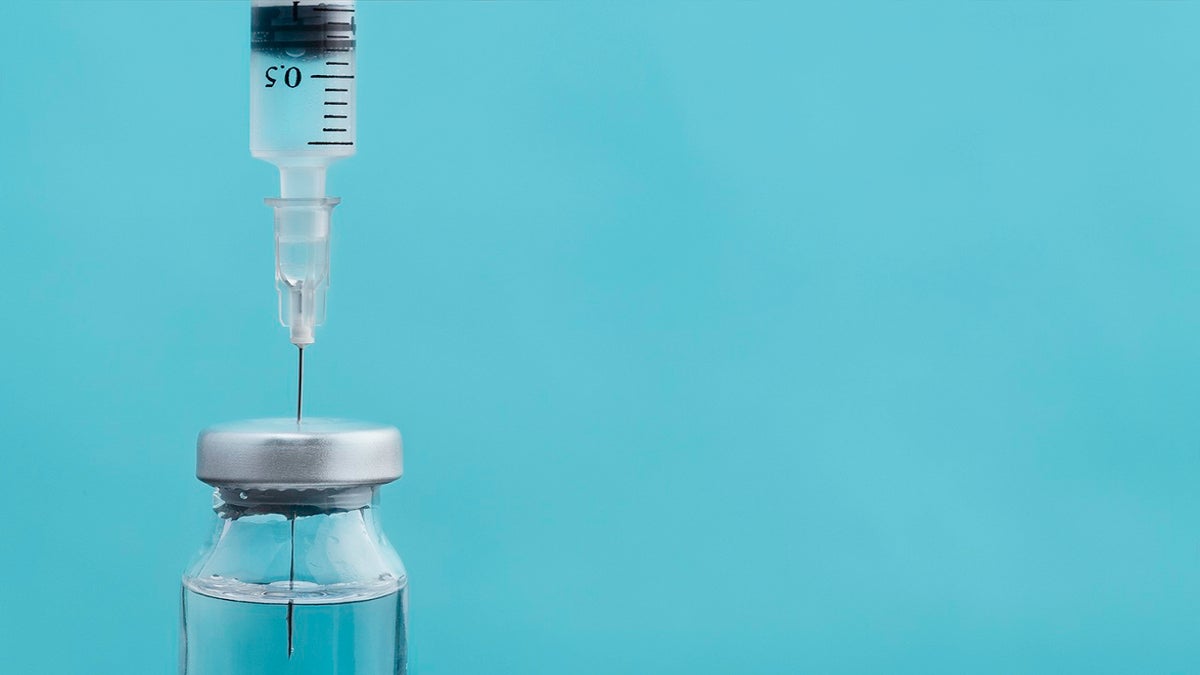AstraZeneca says its coronavirus vaccine is up to 90% effective
Operation Warp Speed director says vaccinations could begin in mid-December; Laura Ingle reports.
Coronavirus vaccines are slated to be widely available by spring in Britain, an Oxford official said Monday.
Adrian Hill, the director of Oxford University’s Jenner Institute, said that following news Oxford University and AstraZeneca’s coronavirus vaccine candidate reached up to 90% in clinical trials, COVID-19 vaccines are expected to be widely available come spring.

The news comes as AstraZeneca and Oxford said Monday their vaccine was as much as 90% effective in preventing COVID-19. (iStock)
“I think we are on track for the timeline ... to start getting this vaccine rolled out from December,” Hill told Reuters.
Hill noted that high-risk groups would likely be the first before they were made available to the general public come spring.
WHY IS OXFORD’S HALF-DOSE CORONAVIRUS VACCINE MORE EFFECTIVE THAN THE FULL DOSE?
“I think that could be done. It’s going to be an enormous effort ... hopefully there will be vaccine available for all adults, but that’s likely to be springtime rather than in January,” Hill said.
The country, according to the outlet, has secured 100 million doses of the AstraZeneca vaccine, 40 million of the Pfizer vaccine and 5 million of the Moderna vaccine.
Separately, AstraZeneca executive Pam Cheng told Reuters that 20 million doses of the vaccine are expected to be available in Britain by the end of the year, and 70 million are expected to be provided by late March. That equals “4 million finished doses this year and 40 million by the end of March,” she told the outlet.
ASTRAZENECA CORONAVIRUS VACCINE LATEST TO SHOW PROMISE: HERE'S HOW IT COMPARES
The news comes as AstraZeneca and Oxford said Monday their vaccine was as much as 90% effective in preventing COVID-19, marking the latest candidate to inch closer toward approval. In a press release posted early Monday, the companies said there were no hospitalizations or severe cases of disease in trial participants who received the vaccine.
In the trial, the one-dosing regimen of AZD1222 got promising results when it was split into two jabs dated one month apart. The efficacy went from 90% down to 62% when two full doses were given one month apart.
“We are excited to see 90% efficacy from the half dose: full-dose regimen," Brendan McEvoy, AstraZeneca spokesperson, told Fox News. "We see a lot of merit in this regimen and we will now start discussions with regulators into incorporating this dose combination for further clinical investigation. We will continue to follow the science to better understand these data."
CLICK HERE FOR FULL CORONAVIRUS COVERAGE
The Oxford-AstraZeneca vaccine does not use mRNA technology and instead involves an inactivated common cold virus isolated from chimpanzees, altered with genes to express the spike protein of the SARS-CoV-2 virus.
Fox News’ Alexandria Hein and Kayla Rivas contributed to this report.

